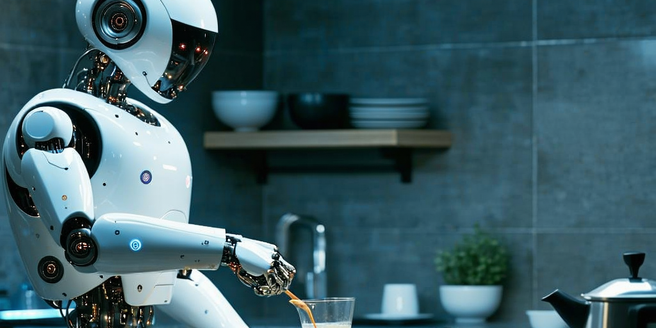Robotic Assistants In Households

Introduction to Robotic Assistants
Robotic assistants have rapidly become an integral part of modern households. These devices range from simple automated vacuum cleaners to advanced personal assistants that can manage daily tasks. The introduction of robotic technology in homes is revolutionizing how we interact with our living spaces. As technology advances, these assistants are beginning to incorporate artificial intelligence, allowing them to learn and predict user behavior more accurately. They offer not just convenience, but also the potential for enhanced safety and security features. By automating mundane tasks, robotic assistants offer valuable time savings and reduced stress. They are engineered to adapt to user needs, providing customized experiences that cater to individual preferences. While still in early stages, these devices are expected to drastically improve in functionality, becoming more intuitive and accessible for different demographics.
The Evolution of Home Robotics
Home robotics have come a long way since their inception. Initially, these devices were marketed as novelties, with limited functionality. However, as consumer demand has increased, companies have been investing more in developing versatile robotic solutions. With technological advancements, they are now capable of complex tasks, such as home management, security, and even caregiving. Today, many households find these robots indispensable for daily chores. The evolution of robotics has been driven by improvements in artificial intelligence and machine learning, enabling them to learn and adapt quickly. This progression has not only enhanced their effectiveness but also placed them as essential tools for a smarter home environment—a trend that continues to expand rapidly.
Benefits of Having a Robotic Assistant
Robotic assistants offer numerous benefits that enhance daily life. They streamline mundane household tasks, providing owners with more leisure time. By conducting tasks efficiently, they reduce energy consumption and minimize resource wastage. Furthermore, they help manage time effectively by prioritizing tasks based on urgency. Moreover, they can personalize their interaction based on users’ preferences, further increasing their efficacy. Additionally, robotic assistants contribute to safety and security, ensuring homes are monitored even from afar. Health benefits are also notable; they offer support for elderly or disabled people, assisting in mobility and routine tasks. These benefits extend to emotional well-being, reducing stress by taking over tasks we dread, resulting in improved overall life quality.
Popular Robotic Assistants on the Market
The market for robotic assistants is rapidly expanding, with products like Roomba, iRobot, and Amazon’s Alexa paving the way. These devices are pioneers, offering a range of functionalities that cater to both basic and advanced needs. While Roomba specializes in automated cleaning, Alexa manages home automation tasks—controlling lighting and temperature through voice commands. The increasing reliance on smart technology in homes has accelerated this market growth. As consumers become more accustomed to these technologies, demand is expected to rise even further. Newer models from various brands are continuously emerging, incorporating more sophisticated features like AI-driven personal assistants and security robots. The competition has fostered innovation, driving models to become ever more affordable and accessible.
Future Trends in Home Robotics
The future of home robotics is set to be transformative, shaped by advancements in AI, connectivity, and miniaturization. As these technologies evolve, robotic assistants will grow increasingly intuitive, collaborating seamlessly across various home automation systems. With continuous innovation, the scope of their capabilities will only expand. As a result, they will become as common in households as smart devices are today. Futuristic designs envision robots that can anticipate household needs, offer health insights, and provide emotional support. Additionally, developers are focusing on ethical AI, ensuring that future robots make considerate choices impacting privacy and safety. Exploring greater connectivity via IoT, home robots will revolutionize household management, transitioning from assistive tools to indispensable partners.